Search Images
Browse Content (p. 1088)
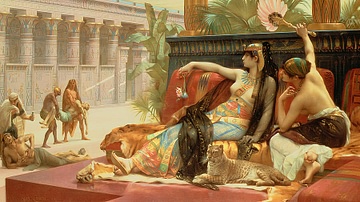
Image
Cleopatra Testing Poisons On Those Condemned To Death
Alexandre Cabanel, 1887 CE. Oil on canvas, exhibited at the Royal Museum of Fine Arts Antwerp.

Image
The Obsequies of an Egyptian Cat
The Obsequies of an Egyptian Cat, oil on canvas by John Reinhard Weguelin, 1886. Auckland Art Gallery. A priestess offers gifts of food and milk to the spirit of a cat. On an altar stands the mummy of the deceased, and the tomb is decorated...
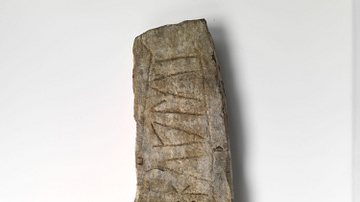
Image
Oldest Writing in Switzerland
Copy of funerary stela with inscription, Vira-Gambarogno, Ticino. 5th century BC. The name of the deceased reads from bottom to top: teromui kalui.
Find our more: The Oldest Writing in Switzerland.
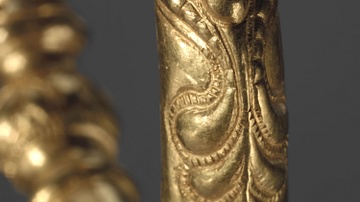
Image
Gold Celtic Ring Detail, 390 BCE
Around 390 BCE. Erstfeld. Canton Uri. Protection for travellers: This treasure was deposited in a rock crevice in a valley leading to the Gotthard Pass, probably as a votive offering by a group of travellers. The rings bear human and animal...

Image
Bronze Age Gold Bowl Detail, 1100 BCE
Bowl, gold. c. 1100 BCE. Zurich-Altstetten. Canton of Zurich. With images of stags and does grazing under round suns and crescent moons, this heavy vessel made of pure gold depicts both heaven and earth. It was buried by a farming community...

Image
Bronze Age Gold Bowl, 1100 BCE
Bowl, gold. c. 1100 BCE. Zurich-Altstetten. Canton of Zurich. With images of stags and does grazing under round suns and crescent moons, this heavy vessel made of pure gold depicts both heaven and earth. It was buried by a farming community...
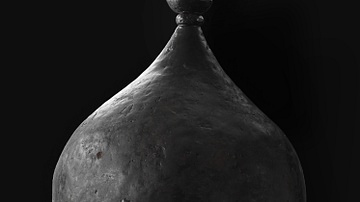
Image
Celtic Helmet, 350 BCE
Helmet, iron, Giubiasco, Ticino. Around 350 BCE. Not just warriors: According to biased descriptions by the Romans and Greeks, the Celts were warriors and barbarians. However, finds of rich grave goods such as jewellery and weapons attest...

Image
Protection for Travellers, Gold Ring, 390 BCE
Around 390 BC. Erstfeld. Canton Uri. Protection for travellers: This treasure was deposited in a rock crevice in a valley leading to the Gotthard Pass, probably as a votive offering by a group of travellers. The rings bear human and animal...
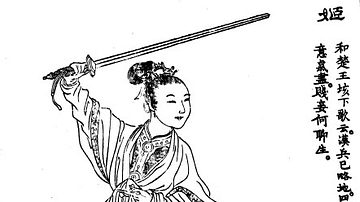
Image
Consort Yu
Artistic rendering of Consort Yu (also Yuji, born Yu Miaoyi), the young concubine of Xiang Yu, King of Chu (r. 206-202 BCE). She was captured in one of the skirmishes of the Chu-Han Contention (206-202 BCE) in which the forces of Liu Bang...

Image
Chu-Han Contention Map
Map showing an attempted reconstruction of the movements of the troops of the Chinese Han and Chu dynasties during the Chu-Han Contention (206-202 BCE), in which Liu Bang of Han and Xiang Yu of Chu repeatedly battled each other. The conflict...